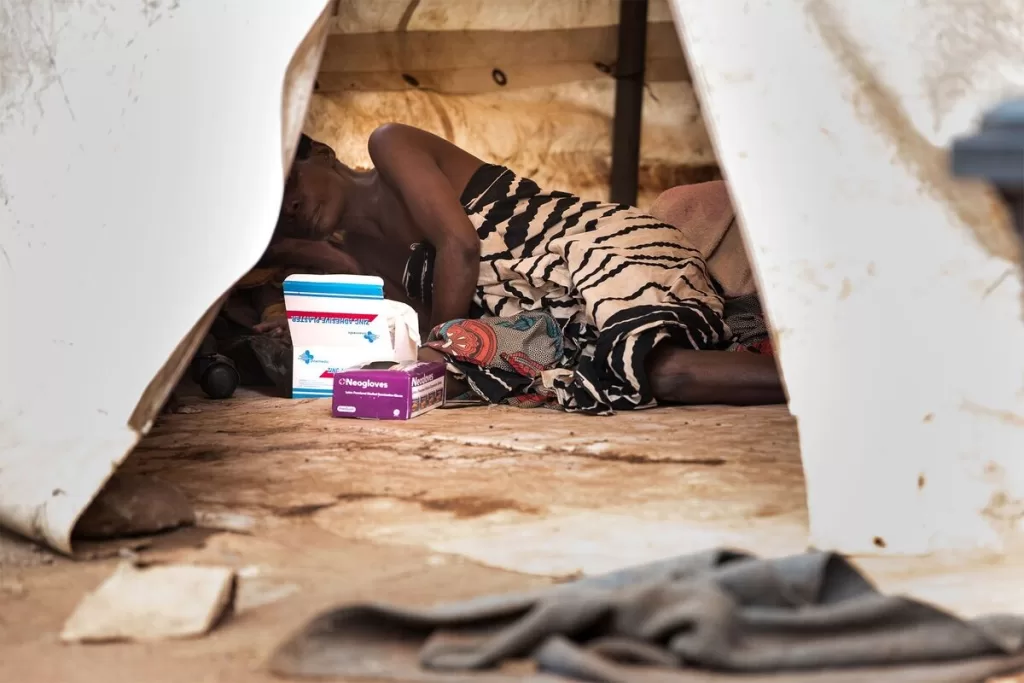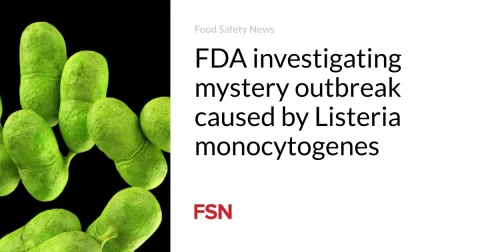The cholera outbreak in Malawi between 2022 and 2023 serves as a stark reminder of the ongoing challenges posed by infectious diseases in the face of climate change. With an alarming 59,325 reported cases and 1,774 deaths, this outbreak was exacerbated by extreme weather events, highlighting the correlation between climate-related disasters and the emergence of cholera. Recent genomic surveillance revealed that the strains of *Vibrio cholerae* prevalent during the outbreak were linked to a concurrent outbreak in Pakistan, underlining the global interconnectedness of health crises. Understanding cholera outbreak causes, especially in light of climate change, is crucial for devising effective prevention strategies. The Malawi cholera statistics paint a troubling picture; as we move forward, it is essential to address the complexities of climate amplification in public health planning.
The recent surge of cholera cases in Malawi illustrates a growing public health crisis that intertwines with environmental factors. This acute diarrheal disease, primarily prompted by contaminated water and food, has seen a significant resurgence as communities grapple with intense flooding and climate-induced challenges. Researchers are increasingly focusing on factors such as genomic tracking of *Vibrio cholerae* strains, which provide insight into the origins and spread of the disease, while humanitarian issues further compound its effects. The link between climatic changes and outbreaks emphasizes the need for proactive measures in disease management and response strategies. By exploring these connections, we can better prepare for potential outbreaks and mitigate the impact of cholera on vulnerable populations.
Cholera Outbreak Malawi: An Overview of Recent Events
In late 2022 and early 2023, Malawi witnessed one of its most severe cholera outbreaks, driven by climatic extremes and inadequate health infrastructure. This outbreak was marked by alarming statistics, with 59,325 reported cases and 1,774 deaths by March 31, 2024. The impact was exacerbated by the devastating floods that struck the region, displacing thousands and creating ideal conditions for cholera transmission. These floods not only disrupted sanitation services but also contaminated water sources, providing a fertile ground for *Vibrio cholerae* to thrive.
The connection between climate change and cholera outbreaks is not solely confined to Malawi. Similar trends have been observed globally, particularly in regions experiencing significant fluctuations in weather patterns. The increase in cholera cases corresponds with escalating climatic events, linking outbreaks to climate change phenomena. This underscores the critical need for improved surveillance systems in place to monitor the spread of cholera, particularly in areas most affected by climate change.
The Role of Climate Change in Cholera Transmission
Climate change has emerged as a significant factor influencing the dynamics of cholera outbreaks globally, and Malawi’s recent crisis highlights this phenomenon. Rising temperatures and increased rainfall have been correlated with an increase in *Vibrio cholerae* prevalence. Extreme weather events in Malawi, such as the floods of 2022, have directly contributed to the spread of cholera by compromising water quality and sanitation systems. Studies indicate that pathogens thrive in warmer conditions, making cholera more prevalent in affected areas during and after climatic disturbances.
Moreover, climate-induced displacement of populations exacerbates the risk of cholera transmission. When individuals are forced to move, often into informal settlements with inadequate sanitation, the likelihood of disease spread increases significantly. Therefore, addressing climate change is essential in preventing future cholera outbreaks. It calls for integrated public health strategies that include climate adaptation and disaster preparedness, aiming to tackle the health impacts associated with extreme weather events.
Understanding the Causes of Cholera Outbreaks
The causes of cholera outbreaks are multifactorial, encompassing environmental, social, and biological factors. In Malawi, the recent cholera outbreak was partly ignited by the intersection of adverse climatic conditions and a historical lack of infrastructure supporting clean water access and sanitation. Major humanitarian crises, such as those caused by natural disasters, have played a critical role by creating environments susceptible to cholera spread, particularly in densely populated areas where sanitation measures are already weakened.
Additionally, the resurgence of cholera can be linked to international travel and the movement of people, which facilitate the introduction of *Vibrio cholerae* strains. The genomic surveillance study revealed that the outbreaks in Malawi had direct ties to strains from Pakistan, indicating a complexity in transmission pathways that include global connectivity. Understanding these complexities is vital for creating effective intervention strategies that consider both immediate health responses and long-term preventive measures.
The Importance of Genomic Surveillance in Cholera Management
Genomic surveillance plays a pivotal role in understanding the evolution and spread of cholera strains, helping to formulate targeted interventions. The sequencing of samples from the recent cholera outbreak in Malawi provided invaluable data, revealing connections between local strains and those present in earlier outbreaks in Pakistan. This information is crucial for tracking the origins of cholera cases and predicting potential future outbreaks.
Moreover, genomic analysis supports public health officials in identifying transmission routes and developing effective response strategies tailored to the specific strains circulating in the population. This approach enhances the accuracy of outbreak forecasting and strengthens the health system’s ability to respond to cholera, particularly in light of ongoing climate changes that may affect the frequency and severity of such outbreaks.
Cholera Statistics in Malawi: A Closer Look
The cholera statistics in Malawi present a sobering picture of public health challenges in the region. With over 59,325 cases reported and nearly 1,800 deaths in just over a year, the scale of the outbreak demands urgent attention. Analysis of these statistics reveals critical trends, indicating that areas prone to flooding and without adequate health infrastructure were the hardest hit, emphasizing the need for targeted interventions in these vulnerable regions.
Furthermore, ongoing data collection and reporting are essential in improving the understanding of cholera’s impact in Malawi. Establishing robust monitoring systems will provide insights into the effectiveness of current interventions and inform future strategies. By leveraging choleral statistics, public health officials can allocate resources more efficiently and intensify efforts in high-risk areas, thereby mitigating future outbreaks.
Strategies for Preventing Future Cholera Outbreaks
In combating future cholera outbreaks, Malawi needs a comprehensive strategy that encompasses multiple facets of public health, disaster management, and climate adaptation. Enhancing water, sanitation, and hygiene (WASH) infrastructure is fundamental to preventing cholera transmission, particularly in flood-prone areas. Additionally, increasing community awareness and education around cholera prevention can empower individuals to take proactive measures to protect themselves.
Collaboration between local health authorities and international organizations is crucial in developing response frameworks that address both immediate and long-term needs. This includes investing in genomic surveillance to monitor cholera strains continuously and improving disease outbreak preparedness through training and resource allocation. By taking a multifaceted approach that combines health promotion, robust surveillance, and infrastructure improvement, Malawi can significantly reduce the risk of future cholera outbreaks.
International Collaboration in Cholera Research
International collaboration is essential in the battle against cholera, especially in a global context where outbreaks can cross borders with alarming speed. The recent genomic surveillance study illustrates how shared data and research efforts between Malawi and other nations can lead to a better understanding of cholera’s transmission dynamics. Such collaborations can enhance the effectiveness of public health responses and lead to more informed global health policies.
Additionally, partnerships with international health organizations can provide Malawi with the technical assistance and funding necessary to implement structured cholera prevention strategies. By building networks with researchers and public health officials across the globe, Malawi can establish a more resilient health system poised to tackle both current and emerging infectious diseases.
Long-term Health System Resilience Against Cholera
Building long-term resilience in health systems is paramount to effectively combating cholera in Malawi. Investments in healthcare infrastructure, such as improving laboratory capacity for diagnosing and tracking cholera, are critical. Moreover, integrating cholera preventive measures into broader health policies can ensure that the system is equipped to handle outbreaks as they arise without overwhelming local resources.
In addition to infrastructure improvements, enhancing the training of healthcare professionals in cholera diagnosis and management can further bolster the country’s response capabilities. Emphasizing preparedness not only involves rapid response to outbreaks but also proactive measures that mitigate risk factors associated with cholera transmission. By focusing on these long-term strategies, Malawi can emerge more resilient in the face of future health crises.
The Future of Cholera Management in Malawi
The future of cholera management in Malawi hinges on the integration of innovative public health strategies with environmental considerations. As climate change continues to alter the natural landscape, it is vital for health policy to adapt accordingly, focusing on preventive measures that address the root causes of cholera outbreaks. This includes not only improving water supply and sanitation systems but also investing in climate-resilient infrastructure.
Moreover, advancing research, particularly in genomic surveillance of *Vibrio cholerae*, will be crucial in anticipating and responding to cholera’s evolving nature. By fostering local and international partnerships, Malawi can harness technology and expertise to create tailored solutions to its unique health challenges. The commitment to a dynamic and adaptive health management strategy will be vital in ensuring safety and health for its population.
Frequently Asked Questions
What are the main causes of the cholera outbreak in Malawi?
The cholera outbreak in Malawi has been primarily driven by extreme weather events, including devastating floods. Such conditions contributed to the contamination of water sources with *Vibrio cholerae*, the bacteria responsible for cholera. Additionally, issues such as population displacements due to climate change have exacerbated the spread of cholera, facilitating its transmission to previously unaffected regions.
How does climate change contribute to cholera outbreaks in Malawi?
Climate change significantly impacts cholera outbreaks in Malawi by increasing the frequency and severity of extreme weather events such as floods. These conditions lead to water contamination and sanitation challenges, creating an environment conducive to the spread of *Vibrio cholerae*, thus amplifying the cholera outbreak risk.
What role does genomic surveillance play in understanding cholera outbreaks in Malawi?
Genomic surveillance is crucial in tracking the genetic variations of *Vibrio cholerae* strains during the cholera outbreak in Malawi. By analyzing cholera genomes collected from affected patients, researchers can identify sources of infection and transmission pathways, thus improving the response strategies to control the cholera outbreak.
What are the current statistics on the cholera outbreak in Malawi?
As of March 31, 2024, Malawi reported 59,325 cholera cases and 1,774 deaths during the current outbreak. These statistics highlight the severity of the situation and the ongoing public health challenges faced in controlling the cholera spread.
Can international travel impact the cholera outbreak dynamics in Malawi?
Yes, international travel can significantly impact cholera outbreak dynamics in Malawi. The recent genomic analyses revealed a connection between the cholera strains in Malawi and those from Pakistan, emphasizing how traveler movements can facilitate the introduction and spread of *Vibrio cholerae* during outbreaks.
What measures are being taken to control the cholera outbreak in Malawi?
To control the cholera outbreak in Malawi, health authorities are implementing measures such as improved access to clean water and sanitation, public health education, emergency vaccination campaigns, and enhanced disease surveillance systems to monitor and respond to new cases effectively.
What is Vibrio cholerae, and its relevance to the cholera outbreak in Malawi?
*Vibrio cholerae* is a bacterium that causes cholera, an acute diarrheal infection. Its relevance to the cholera outbreak in Malawi is critical, as the monitoring and genomic analysis of this pathogen are essential for understanding transmission dynamics and developing effective intervention strategies.
How do humanitarian crises influence cholera outbreaks in Malawi?
Humanitarian crises, often resulting from climate-induced events such as floods, disrupt access to clean water and health services, leading to increased vulnerability to cholera. These conditions create the perfect environment for the *Vibrio cholerae* bacteria to thrive and spread among displaced populations.
What lessons can be learned from the cholera outbreak in Malawi related to climate change?
The cholera outbreak in Malawi illustrates the urgent need for integrating climate change considerations into public health strategies. This includes addressing the effects of extreme weather on water and sanitation infrastructure and promoting resilient health systems to better withstand future outbreaks.
What collaborative efforts are necessary to address cholera outbreaks in Malawi?
To effectively address cholera outbreaks in Malawi, collaborative international health efforts are necessary. This includes sharing genomic surveillance data, coordinating responses to mitigate climate impacts, and enhancing regional health systems to prevent the spread of *Vibrio cholerae* across borders.
| Key Points |
|---|
| Malawi faced a severe cholera outbreak following extreme weather events in 2022, resulting in 59,325 cases and 1,774 deaths by March 31, 2024. |
| Genomic surveillance identified that the cholera strains in Malawi stemmed from Pakistan’s cholera outbreak, highlighting the connection through travel. |
| The outbreak in Malawi was exacerbated by climate change and humanitarian crises, with major floods facilitating the transmission of cholera. |
| Methods included genomic sequencing of isolates to understand the genetic relationships of cholera strains. |
| Findings emphasized the need for international collaboration in health strategies to combat cholera outbreaks linked to climatic conditions. |
Summary
The cholera outbreak in Malawi serves as a critical example of how extreme weather events can amplify the spread of infectious diseases. With mounting evidence linking the outbreak to climatic disruptions, urgent action is required to strengthen public health systems and enhance international cooperation to combat similar health crises in the future.
The content provided on this blog (e.g., symptom descriptions, health tips, or general advice) is for informational purposes only and is not a substitute for professional medical advice, diagnosis, or treatment. Always seek the guidance of your physician or other qualified healthcare provider with any questions you may have regarding a medical condition. Never disregard professional medical advice or delay seeking it because of something you have read on this website. If you believe you may have a medical emergency, call your doctor or emergency services immediately. Reliance on any information provided by this blog is solely at your own risk.








